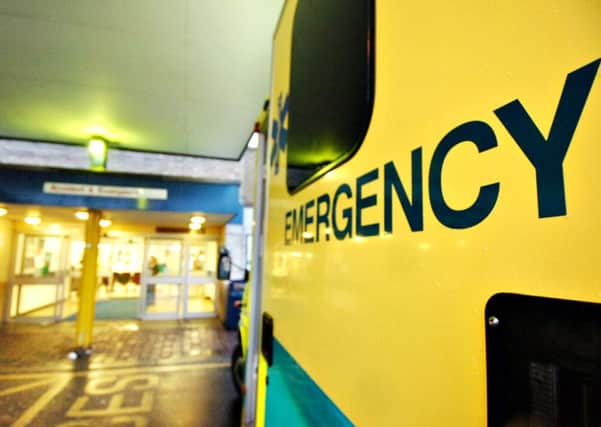Trust to keep disruption to a minimum during strikes


However, they are keen to inform the public that they will be experiencing a reduction in their available workforce on Monday October 13 between 7am and 11am and anticipate that their 999 service will operate at a reduced level meaning they may not be able to respond to emergencies as quickly as they would like.
Whilst fully recognising the rights of staff to strike, the Trust’s is working to minimise the impact on services and constructive discussions with trade union representatives has led to an agreement that frontline A&E staff will respond the highest priority of 999 calls for patients who have a serious or life-threatening illness or injury.
Advertisement
Hide AdAdvertisement
Hide AdHowever, there are a number of categories of 999 calls not covered by this agreement and, due to the potential delays people may experience when calling 999, the Trust is urging members of the public only to use the emergency ambulance service in a serious or life-threatening emergency.
Ian Brandwood, the Trust’s Human Resource and Operations Director, said: “We, along the trade unions, are keen to ensure that we continue to provide a safe service to our local communities and we are working together to ensure this is achieved.
“Although our focus is on ensuring attendance at the most serious and life-threatening 999 calls, we will have a reduced workforce and there is likely to be some disruption to the emergency service and our response could be extended.
The Trust’s Deputy Medical Director Dr David Macklin says the service will be working hard to prioritise incidents according to urgent clinical need. He said: “We will be carrying out additional clinical assessment over the telephone using doctors and senior clinicians in our 999 Emergency Operations Centres to prioritise those most in need.
Advertisement
Hide AdAdvertisement
Hide Ad“Members of the public can play a big part in ensuring that those who need an emergency ambulance response get one and it’s vital that people only call 999 for an ambulance when it is a life-threatening or serious illness or injury. Anyone requiring advice or treatment for a non-emergency situation or minor ailment should consider options such as self-care, a visit to a local pharmacist, GP surgery or walk-in centre, or NHS 111.”
The Trust would also like to remind the public that they have had to cancel journeys with its non-emergency Patient Transport Service for those due to attend routine appointments at hospital clinics. However, the service is operating for patients with urgent medical needs such as essential renal and oncology treatments. Patients who are able to make their own way to appointments should check with the hospital or clinic first to ensure their appointment is still going ahead.
The Trust expects there to be a period of recovery following the national industrial action and is committed to returning to business as usual as quickly as possible.